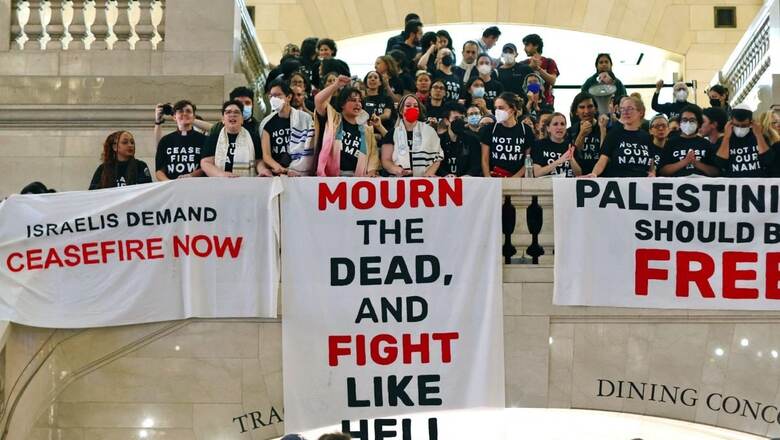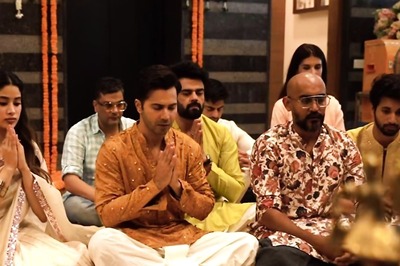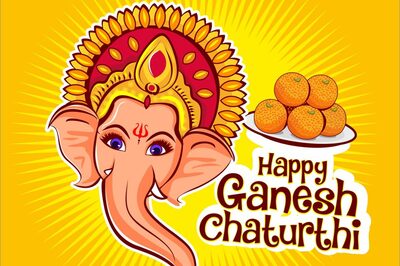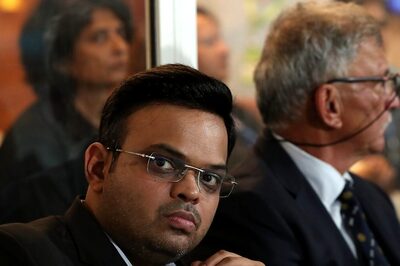
views
The Great War also spelled the doom of the Ottoman Empire. Mustafa Kemal Atatürk established the modern Turkish republic in 1919. However, in distant India, a movement to restore the Khalifat was formed by several Muslim leaders and organisations.
The Indian National Congress’ support for the Khilafat Movement was perhaps tactical. Or else it was a brave gambit to prevent the Partition of India by supporting a cause, thousands of miles away, which meant little to the Indian masses.
Unfortunately, their support for the Khilafat got the Congress precious little. It was the Congress’s mistaken support for the Khilafat Movement which also, though unintended triggered the Moplah Rebellion in Kerala. In name it was a revolt, doomed to failure from the start, against the British empire. But in actuality it resulted in a massacre of Hindus, accompanied by rape and forced conversions. For the innocent, this time-tested template of Islamist extremism was being re-enacted in India once again in the 20th century.
It was this same blueprint which would be used to effect the horrors of the blood soaked partition of India in 1947. In fact, the Congress’s mistaken support for the Khilafat Movement, it may be argued, directly contributed to the Partition of India in 1947. How? The logic is simple. The more Muslim interests were appeased, the more they upped their ante. Eventually, they demanded — and obtained — the goriest dismemberment of Mother India.
Let us look a little closer at the Khilafat Movement to understand better this tragic sequence of errors, which even the great Mahatma Gandhi succumbed to. Yes, to ask for the restoration of the Ottoman Empire might appear to be anti-colonial. After all, it was Britain, the greatest imperial power in human history which finished what was already a rotting and retrogressive, not to speak of repressive, institution.
Yes, once again, it was the British who encouraged and supported Arab nationalism, which not only led to the liberation of the Arabs from Turkish domination, but also created the Middle East as we know it today. But it defies imagination to consider the Ottoman Empire as anything other than itself the last vestige of an expansionist Islamic imperialism. Instead, its replacement, the modern Turkish republic, was progressive, democratic, and, to the extent possible, secular.
For Indian Muslims organisations to support the restoration of Ottoman Caliphate was senseless, even if it symbolized Muslim religious authority worldwide. In fact, Muslim emperors in India had rarely recognized the Turkish Khalifa as their master. Even Tipu Sultan in his fight with the British, when he appealed to Khalifa, in the name of Islamic solidarity, for help, received none.
How did the Indian National Congress, India’s leading political party in the struggle for Indian independence, miss what was plain and simple to other leaders like V. D. Savarkar? Savarkar, himself an early proponent of Hindu-Muslim unity against British colonialism, realised after the Khilafat Movement, that this was impossible in the subcontinent. A conclusion that B R Ambedkar also, sadly, echoed closer to India’s independence in 1947.
But the Congress, led by Mahatma Gandhi, decided to extend their support to the Khilafat Movement. Gandhi believed that if Hindus supported Muslims in a cause dear to the latter, Indian Muslims would also make common cause with Hindus against their colonial rulers. But both Gandhi and the Congress were wrong, as historical facts will easily bear out. As the demand for Pakistan, which seemed such a non-starter through the 1920s and 1930s, suddenly gathered momentum in the 1940s, the Muslim League played its divisive cards shrewdly.
While the entire Congress leadership was in jail after the Quit India movement of 1942, the Muslim League fought and won elections in key parts of India, including Bengal. They used their political clout to make themselves legitimate and equal players along with the Congress in the independence negotiations with the British colonial powers. To reinforce their claims, they also resorted to “Direct Action,” which meant widespread communal clashes and the killing of thousands of Hindus. The communal genie, once out of the colonial bottle, could never be put back in. To this very day.
Now, over a century later, the issue of the Indian National Congress’s doublespeak on Hamas, their inability to condemn Islamist radicals and terrorists, their failure to prevent the 26/11 attacks on Mumbai, and their concerted attempts to raise the bogey of “Saffron Terror,” says a great deal about the party’s stance on India’s internal politics. But it also shows their lack of spine when it comes to international matters, particularly in the context of the Israeli-Palestinian conflict. Hamas is an Islamist political and military organization that governs the Gaza Strip. It has been designated as a terrorist organization by several countries, including the United States, the European Union, and Israel.
The comparison between the Congress support for the Khilafat Movement and its inability to separate Hamas from the Palestinian cause is, admittedly, not straightforward. While there are similarities in terms of supporting causes with religious or ideological significance to specific communities, the global context has significantly evolved since the early 20th century. True. But, as I have argued, we can trace a line, however jagged, between the two, marking the significant connections.
The bottom line is clear. A hundred years later, the Congress seems to be making the same mistake in equivocating on Hamas as they did in openly supporting the Khilafat Movement. Appeasing Islamist radicals and extremists only emboldens, not softens them. Even though we might believe ahimsa paramo dharma, the only defence against terrorists is tough deterrence and even tougher retaliation. Of course, the Left parties are worse than the Congress in this regard given that they actually invited Khaled Mashal to virtually address a pro-Palestine rally in Kerala.
In sharp contrast, we might consider Prime Minister Narendra Modi’s recent the statement. Addressing the nation from Kevadia, Gujarat, on October 31, Sardar Patel’s birthday, now commemorated as National Unity Day, he said: “The last many decades in India are witness to the fact that appeasers never see terrorism and its monstrosity for what they were. Appeasers don’t hesitate to stand by enemies of humanity. Politics of appeasement is biggest hurdle in India’s development.” For those still in doubt, the difference should be crystal clear.
The writer is an author, columnist, and professor at Jawaharlal Nehru University. Views expressed in the above piece are personal and solely that of the author. They do not necessarily reflect News18’s views.




















Comments
0 comment